Stratified Trajectories: Charting Equity Gaps in Program Pathways Among Community College Students
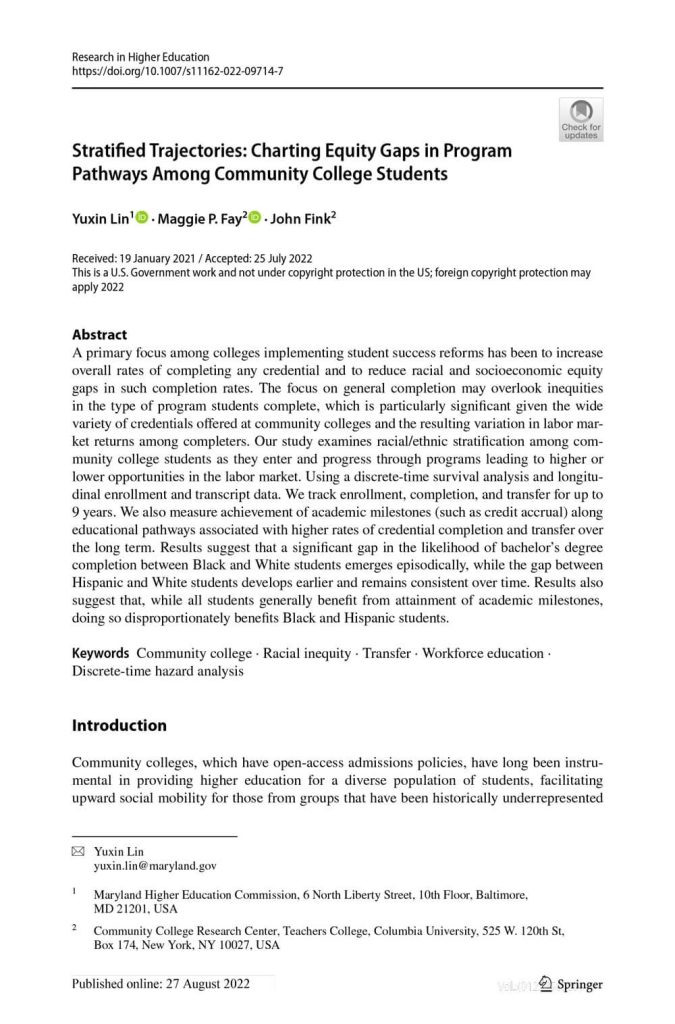
Using nine years of data from one state, this paper tracks completion and transfer outcomes to examine when gaps between Black, Hispanic, and White community college students occur, and it estimates the benefits of reaching early academic milestones for such students.
A Strategy for Estimating the Effects of Whole-College Guided Pathways Reforms in Community Colleges
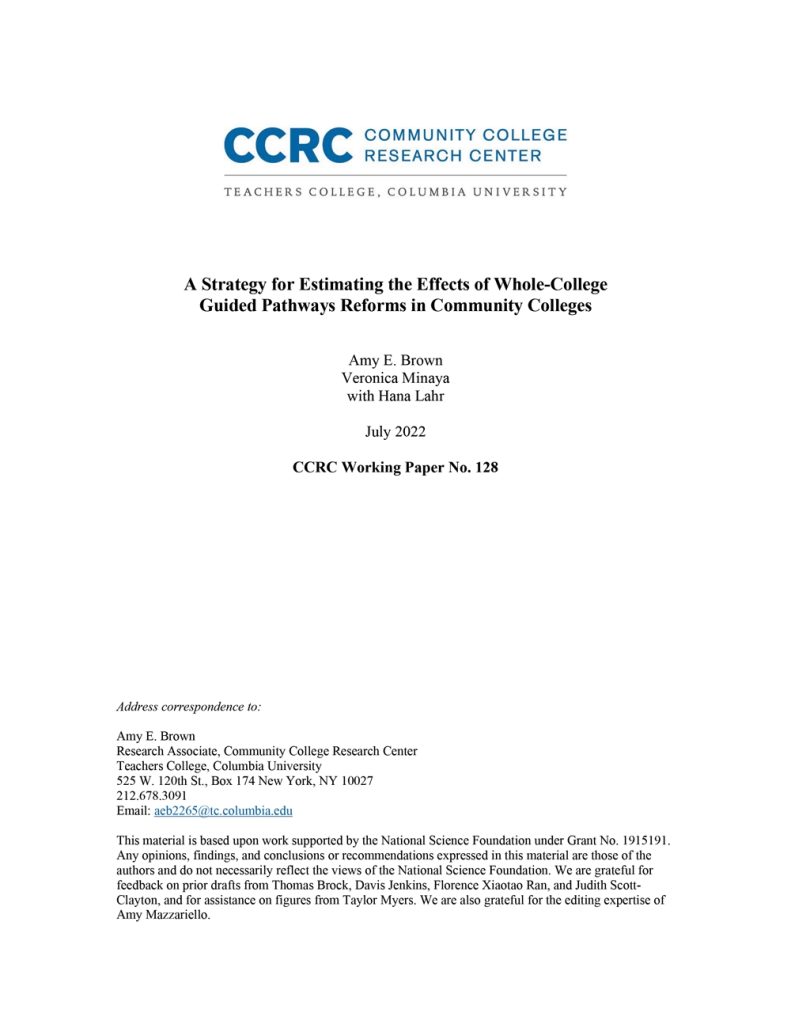
This paper presents a methodology for assessing the scale of adoption and estimating the causal effects of guided pathways within states and across colleges that have adopted the approach.
Does Taking a Few Courses at a Community College Improve the Baccalaureate, STEM, and Labor Market Outcomes of Four-Year College Students?
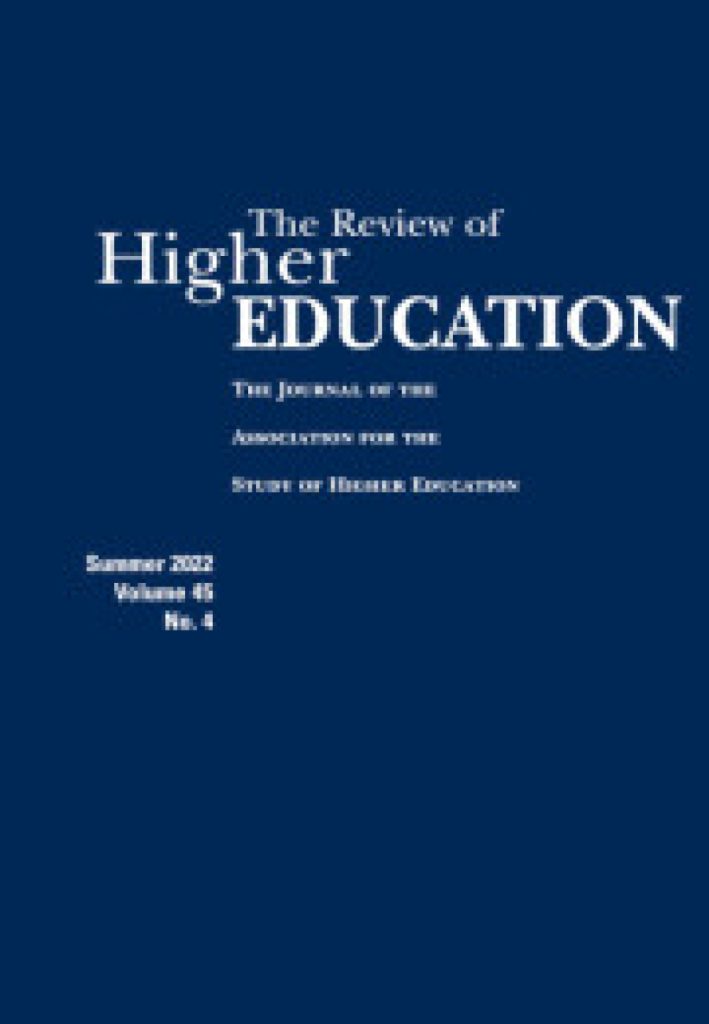
Using data from the Education Longitudinal Study and a propensity score matching approach, this paper compares outcomes of four-year college students who earned either 1–10 credits or no credits at a community college.
Informed Self-Placement Today: An Exploratory Study of Student Outcomes and Placement Practices
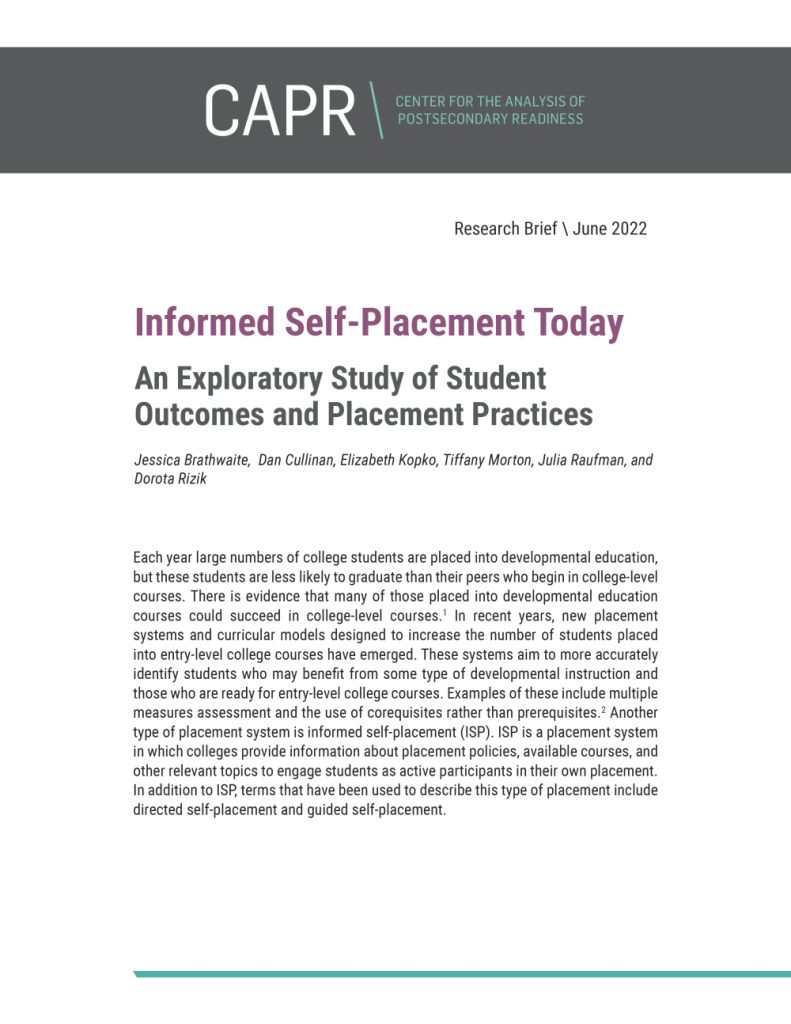
This CAPR brief provides a taxonomy of various informed self-placement (ISP) systems, shares descriptive data from three colleges using ISP, and identifies important equity and access considerations for implementation.
Implementing Caring Campus With Nonacademic Staff: Lessons From Participating Colleges
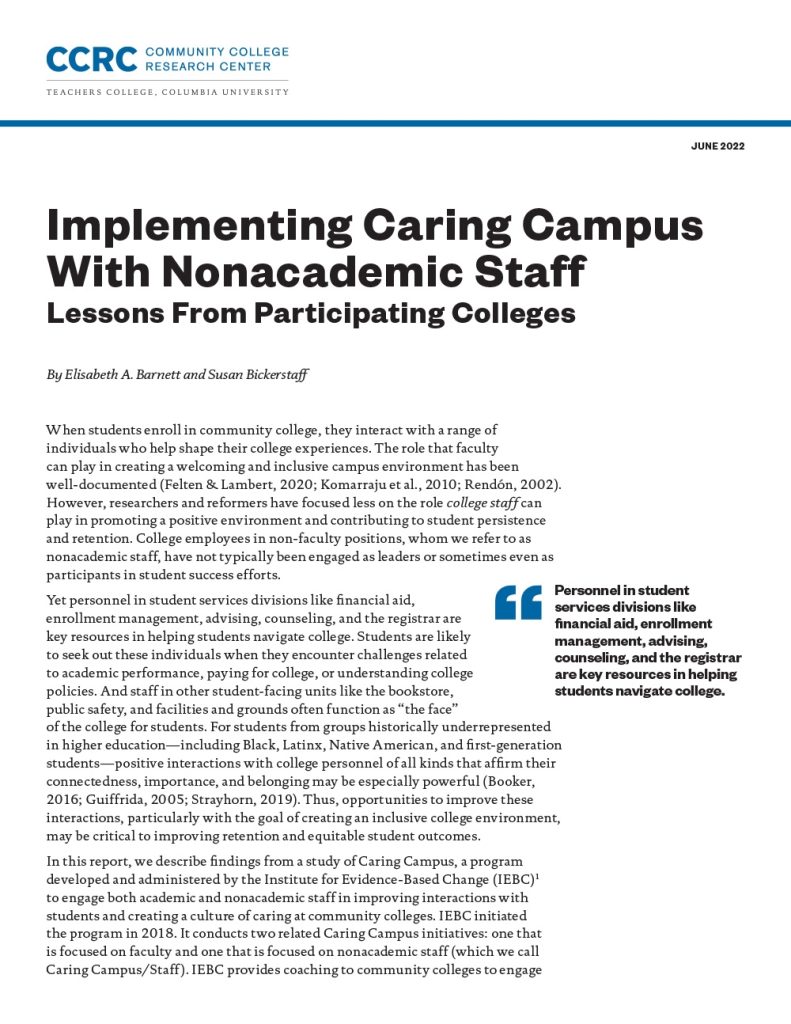
Based on fieldwork at six institutions, this report describes how colleges are implementing Caring Campus/Staff, a program designed to engage nonacademic staff in improving interactions with students and fostering a culture of caring at community colleges.
